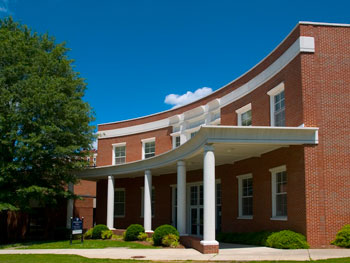
Longwood University is offering a new one-year Master of Science in Education degree with a concentration in elementary education beginning in the 2013 spring semester.
The degree joins other one-year master’s programs already offered by the university. The course work can be taken by undergraduates as a 4-plus-1 program or by an existing teacher seeking to earn a higher degree. The first group of students to go through the program—a mix of veteran teachers and recent Longwood graduates—are based in Prince Edward County Public Schools.
Longwood developed an innovative approach to the one-year schedule that will make it easier for teachers to work in the field while completing the degree. The courses will be taught using a hybrid method: Students will take one class at a time—one each in three five-week blocks over a semester—instead of taking the courses simultaneously. Intensive, compact classes allow master’s candidates to enroll in a full course load—necessary to secure financial aid—while maintaining a full teaching load. Professors will teach classes through a mix of face-to-face classroom time and online instruction.
In addition to three classes during each semester, students are enrolled in four courses over the six-week summer break and one during the winter break. The four summer classes are also delivered in blocks.
Longwood developed the hybrid approach to make it possible for current teachers to earn a degree. "Instead of teachers having to juggle a full teaching load and three classes, we have broken it up into intensive blocks that are easier to manage," said Dr. Nancy Powers, program coordinator for the one-year degree. "This allows us to have a mix of fresh graduates and veteran teachers in our program, which will enhance learning and instruction."
The program is available to groups of students who form regional cohorts based in a particular county or school division. These cohorts, made up of 10-15 students, will go through the yearlong program together.
Longwood is using technology to reach potential cohorts in other areas of the state. "We are able to take our lectures here and beam them out to different places where cohorts meet for class," said Powers. "This gives access to the one-year program to potential students all over the state and gives master’s candidates crucial access to the expertise of Longwood professors."
The program is designed as an extension of a lab school partnership, in which instruction and classroom practice are blended and analyzed in a controlled setting. "Our master’s candidates will be able to immediately put into practice what they are learning and see what works in actual classrooms. Professors will be available to help them along the way and tailor instruction to the needs of the students," said Powers.
This blend of instruction and engagement doesn’t just benefit Longwood master’s candidates, said Dr. Wayne White, dean of the College of Education and Human Services. "It’s a comprehensive approach that benefits not only the university and its teacher candidates but also the school divisions and communities where our graduates will work," he said. "By putting ideas into practice and assessing how they work, Longwood teachers will come out of the master’s program with an in-depth understanding of what works in the classroom, and the schools will get experienced, effective teachers."
The first cohort, based in the Prince Edward County Public Schools system, and began classes Jan. 15. The courses will be taught at Prince Edward County Public Schools’ Career and Technical Center, where the distance-learning lab will be used to broadcast certain classes to Emporia, Mecklenburg County and South Boston for counseling and education leadership students.

